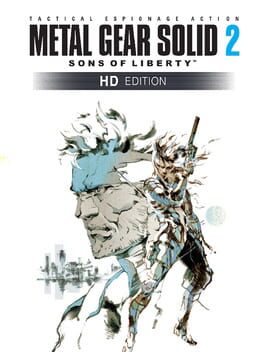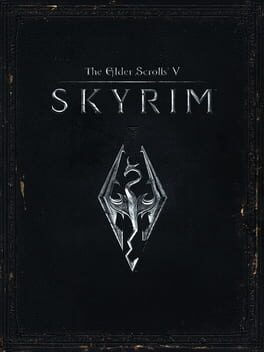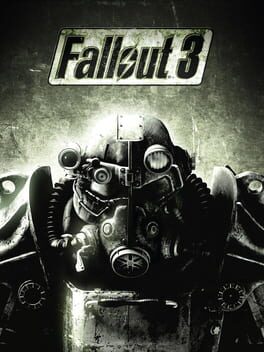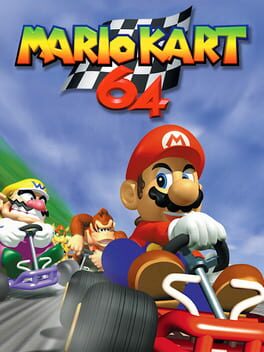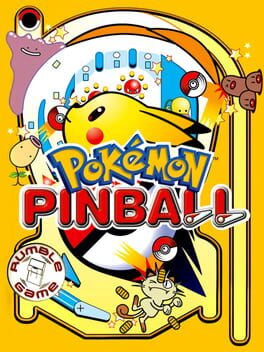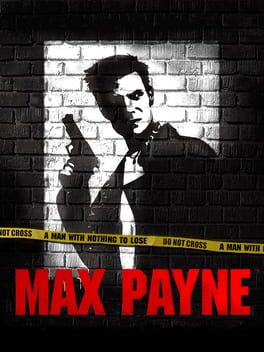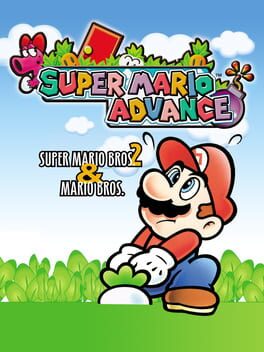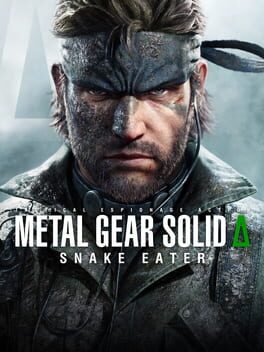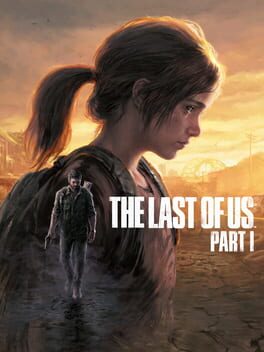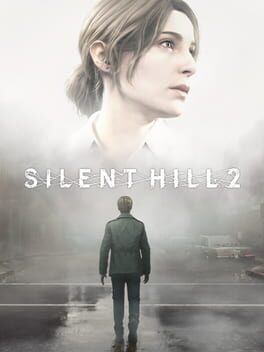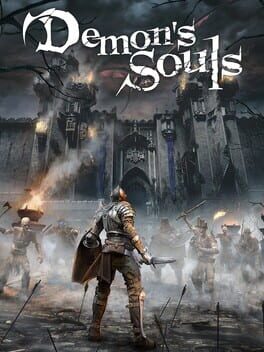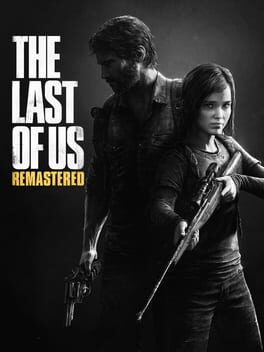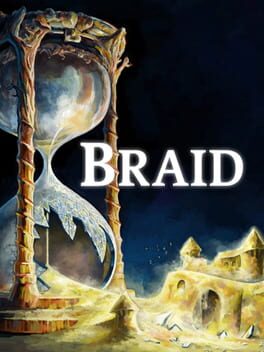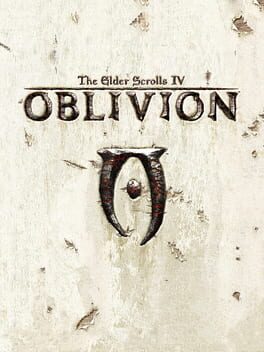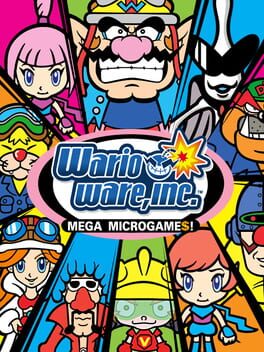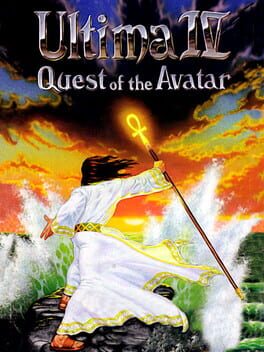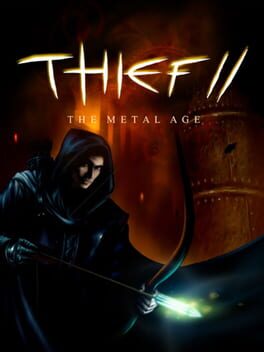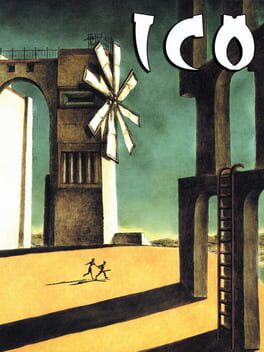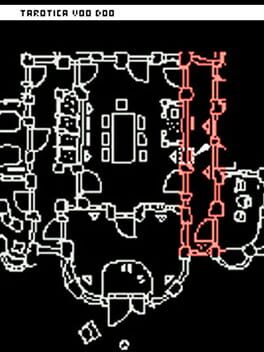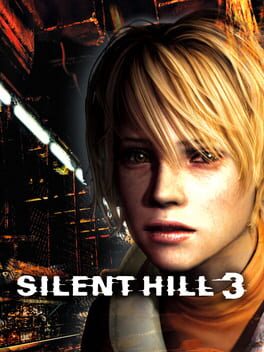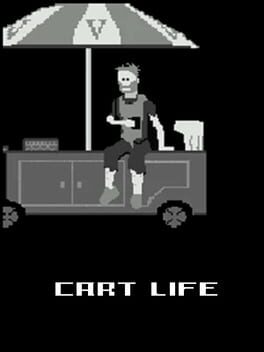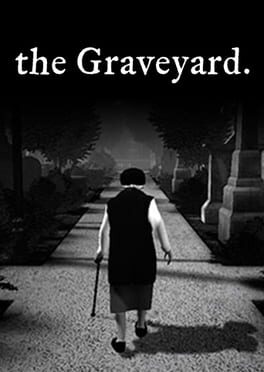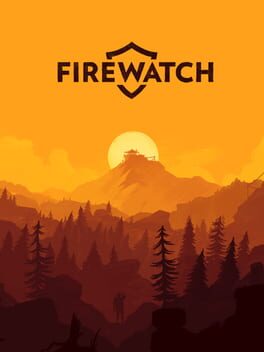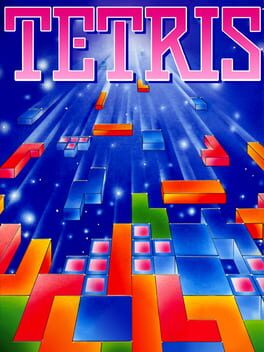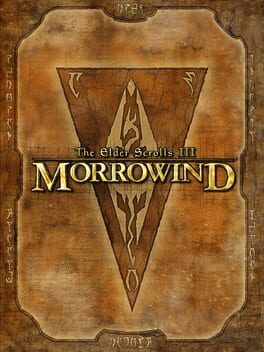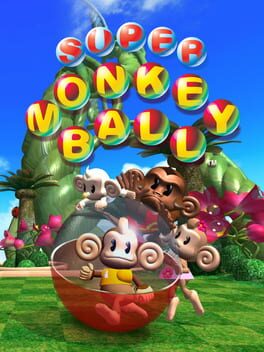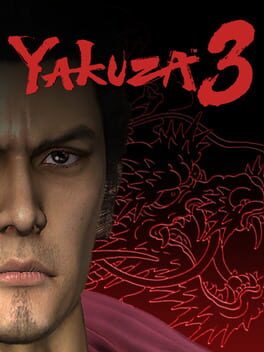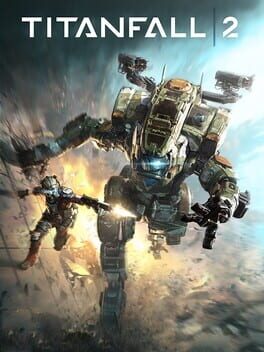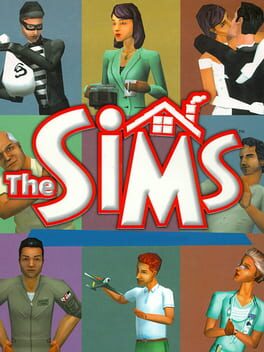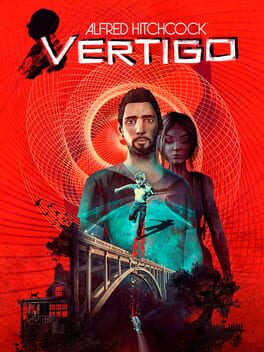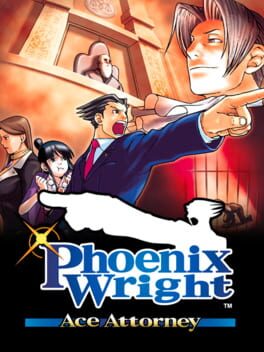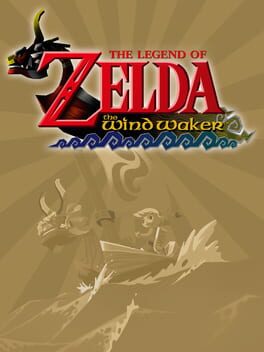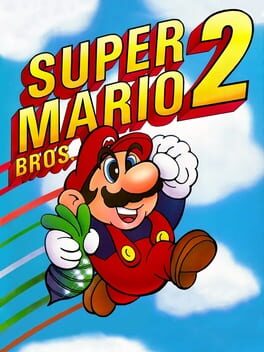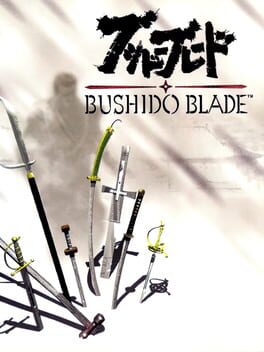caebl201
BACKER
199 reviews liked by caebl201
Hideo Kojima's career is fascinating, and it's not something you can hope to find out about from "The Official Version". You kind of have to dig into old interviews, and have first-hand memories of long-delisted websites and discarded promotional material. GW has erased the ugly details, but I can't say goodbye to yesterday, my friend. Kojima thrived on the sidelines. He was originally hired as a project planner on Konami's MSX team, in the offices that the management didn't pay much attention to. The high-stakes positions were all working on Famicom and arcade games, and Kojima spent the first decade of his career in the shadows, catering to a small, enthusiast market with Japanese home computer releases and text-heavy adventure games. It's easy to over-romanticise this era. It wasn't easy. There was a lot of mismanagement and the expectation for relentless crunch, with many members of staff spending days on end in the office without leaving, but the games that came from those teams were pretty special. They were purposefully constructed, delivering a clear worldview and commenting on the ethical dangers of scientific developments in a politically unstable world. Then MGS1 was a huge international success, and all eyes were on Kojima.
From the early days, it was clear that Kojima had a unique confidence and self-belief. Some may call it ego or even narcissism, but it's what gave him the drive and ambition to attempt blending dense, socially relevant stories with traditional videogame action. When the bulk of the Japanese games industry was still hiding behind publisher-insisted pen names, Kojima opened Metal Gear 2: Solid Snake with an introductory credits sequence, naming each member of staff, saving himself for the biggest credit. It made sense. MSX2 owners who'd played Metal Gear and Snatcher knew that there was a rare quality to Hideo Kojima's games, and Metal Gear 2 was the promise of the Kojimiest game yet. Policenauts would similarly promote itself on the name of its director, delving into the production process with behind the scenes books and bonus discs that were fairly uncommon forms of game merchandise in the mid-90s. Before MGS1 had made the west aware of him, Kojima was putting his face on soundtrack CDs. He wanted the spotlight, but he didn't know how demanding it would be of him.
Metal Gear Solid 2 was announced, and was propped up as the game for the new millennium. The one thing that would chrysalise the medium into a new form. In tandem with the growing interest in the internet, the significance of home computer ownership was really taking hold. DVD players and digital TV services were selling themselves on "Interactive" features, reportedly blurring the line between audience and participant (we didn't know at the time that the peak of this technology would be Beehive Bedlam). Sony were convinced that Windows PCs were too technical and business-focused for mainstream adoption. There would be no overlap between the computer and the living room. The word at the time was that the PlayStation 2 was going to be the thing to take people into this new, interconnected era, and traditional forms of entertainment would become a memory of the 20th Century. The promise of the "interactive movie" that had been dangled towards early adopters of CD-ROM, finally coming to fruition. From Final Fantasy X to Oddworld: Munch's Oddysee, and perhaps most ridiculously of all, Tomb Raider: Angel of Darkness, many new titles were selling themselves on the promise to bridge the gap between these mediums, but for many, MGS2 seemed like the best bet to accomplish it. That's a lot of pressure for a game where you navigate boxy rooms, avoiding blue vision cones.
Metal Gear Solid 2 trailers were bold. Not only were they promising a game with unforeseen levels of interactivity, but wild narrative swings. We were told Solid Snake was dead. We were told he was the leader of the terrorist organisation putting the world at ransom. We'd anticipated a game that would radically shift our perception of the prior one. When we eventually bought the game, we swallowed the bitter truth when a mysterious Navy SEAL popped up with David Hayter's voice, taking fire at a horny vampire.
Reading pre-release interviews with Kojima, it's clear that he was as convinced by the potential as anyone else. He talks about character movement being impacted by changing wind direction, the integration of voice-recognition and online support. The end results are so compromised that you might not even notice them in the game. The network support got nipped and tucked at so much that in the end, it became an online competition for the opportunity to have your name appear on an in-game dog tag, and a browser-only leaderboard system where you could post your completion stats after you finished. The voice support, adding user-expression to the long, dense CODEC calls? That's the ability to press R2 to have your character audibly think a weird retort. "WHATEVER!" These are the limitations of not only the PlayStation 2 in 2001, but the ability of a Japanese development studio to deliver an action game on new hardware in a three-year project.
MGS2 couldn't live up to those initial ambitions. It didn't fully satisfy those dreaming of something new and transcendent. It was MGS1 again with extra buttons. But oh, what buttons!
MGS2 has so many cool little stealth moves to play around with. You get a real sense of your own ingenuity as you figure your way through each section. VR Missions was everything that MGS1 gameplay could offer. The developers knocked their heads against the walls, spinning its systems off down every conceivable avenue. The frustration of these limitations directly inspired the techniques players could make use of in Sons of Liberty. Players would be able to interact with guards much more intricately, threatening them at gunpoint, disabling walkie-talkies, injuring specific limbs, and shaking them down for extra supplies. Snake and Raiden could roll (or cartwheel), hang from railings, and pop out of cover, ready to fire. Most crucially, you could now aim from a first-person perspective, allowing for much more deliberate action in shoot-outs, or just fuck about with the set dressing to see how many clips KCEJ recorded for the sound of shooting a frying pan with different guns. Shenmue had set a new precedent for how interactive a 3D world could be in a game, and MGS2 picked up the baton to explore how that degree of tangibility could benefit Metal Gear. Hardcore fans who had bought Zone of the Enders solely for the opportunity to play a small section of this game would become intimately familiar with all the quirks and potential of its gameplay, hungry to see how they would be explored in the full campaign. I'm not convinced the Big Shell was the best possible pay-off for these hopes.
It isn't just the fact that players got to spend more time with their favourite muscle man that makes the Tanker section so beloved. It's very purposefully designed to explore MGS2's mechanics, and refreshingly, it borrows little from the structure of the MSX games. Metal Gear had already spent multiple generations reworking and refining the same, familiar setup, and it was exciting to see the series do something different. There's no hostages, no NIKITA puzzle, no underwater facility entrance. It was doing new things, taking out security cameras, shaking down guards for supplies, and sneaking past an audience of a hundred soldiers during a speech. It was exciting. But those old tropes were waiting for us, just around the corner. Justifying themselves via a metatextual reflection upon the previous game.
MGS2 is discussed in hushed, reverential tones these days. If something seemed weird or stupid, you obviously didn't get it. It had been relatively easy to understand a story about genetic inheritance, but memetic inheritance seemed far more abstract. Snake was a son of genetic inheritance, being a clone of the world's most prized soldier, and Raiden, the son of ideological inheritance, with Solidus killing his parents and fostering him as his own brainwashed soldier. Every action he takes is accompanied by a question of how he's being manipulated, and by whom. There's an awkward balance in the game being both radically incisive and incredibly schlocky videogame trash. Whenever it did something too absurd or outright crap, we took faith in the notion that nothing was quite what it seemed. Like there was a hidden truth that would make it all cohesive and brilliant. It was up to us to find it, and if we couldn't figure it out, we could always just pester Kojima and Konami to produce a much more pandering sequel. Full of retcons, underwhelming reveals, and relentless goalpost shifting. Was there ever value in MGS2's outlandish paranormal activity? Did Kojima ever have an answer before his arm was twisted enough to yell "nanomachines" in response to every question? Are we ashamed of our words and deeds for ever thinking the whole of Shell 2 was agonisingly tedious?
Discussing MGS2's story is a sticking your hand in a can of worms and finding a worm-filled rabbit hole at the bottom. A dense, purposefully confusing, and often prescient script. It also has roots in Kojima's 80s action game design, where storybeats are mainly included to intrigue its audience enough to continue playing. Kojima's handwritten script is filled with footnotes, explicitly referencing the Hollywood blockbusters he ripped each idea from. MGS2 was the point where much of Kojima's games became dictated by the promises he'd made in press interviews and pre-release trailers. MGS4 staff have talked about spending months solely working on moments to include in trailers, and then retroactively having to build the game around those moments. That approach started here. Shallow instances of mindblowing spectacle, engineered to shift product with little concern for the long-term impact. Ocelot's arm, Vamp's superhuman abilities, basically everything to do with Dead Cell - they're weird twists, and typically just for the sake of having a weird twist. Vamp's gay relationship with US Marine Corp commander, Scott Dolph, appears to be entirely a sophomoric in-joke targetted at Kojima's then-personal interpreter. MGS2 is simultaneously an earnest musing on the nature of propaganda in the digital age, and a very stupid videogame with absurd arcade game bosses. I don't want to make out like all the silliness is purely problematic or mishandled. There's moments of fun and whimsy I enjoy. Slipping on birdshit and the guard taking a leak off the side of the Strut L. Fatman. It's not the focus, but the old frivolous MSX personality is still here. Just muffled by all the pretension surrounding it. On your first playthrough, you don't know whether you can just enjoy something as a daft joke, or if it's hiding some deeper layer of significance. MGS1 had one foot in gaming's history and another in its future, and MGS2 attempts the same, with messier results in either respect.
The game's English writer, Agness Kaku, has discussed the thankless job of attempting to make MGS2's weird, convoluted script sound engaging through its translation. A lack of reference material, character limits, and heavy rewrites from Konami resulted in the game we have today. It's also clear that she doesn't have much regard for Kojima's script, and attempted to inject it with a richer sense of character and more entertaining dialogue. Many gamers would feel take strong objection to someone, particularly a woman, tinkering with the script from a visionary of Kojima's status, but the bulk of MGS2's most beloved English lines are embellishments on Kaku's part, and her political and literary knowledge lined her up well for the subject matter. However, Konami's insistence on literal translations of certain lines, paired with her personal distaste for Kojima's writing, made the final script fairly patchy and inconsistent. As talented a voice director as Kris Zimmerman is, there are lines of dialogue that are delivered in very odd ways, suggesting the cast didn't really understand the intention behind them. By contrast, Kaku's work on Katamari Damacy presents quite an interesting dynamic. That was a similarly text-rich game, but one with a much more playful tone, and a less demanding writer. She was allowed to completely rewrite the game with very little direction, and the final result was a delight. Katamari writer/director, Keita Takahashi has gone on to learn English at a high level and now lives in San Francisco, where he's expected to speak it as his main language. I wonder if he's ever gone back to look at the English version of his PS2 game.
Metatextually, MGS2 benefits from a constant feeling of distrust. To know whether or not you're seeing the real version. There's an additional distrust of censorship thanks to the game's Q4 2001 release date, the story of terrorists causing destruction and political instability off the coast of New York City, and public sensitivity to the subject matter at the time. Following September 2001, there had been late-stage edits to the game, and as an audience, we can't be sure how compromised the final release is, but even without the real-world parallels, the game is filled with themes of how lies spread and ideas take hold. From the once-tortured child soldier, Raiden, to Peter Stillman's faked disability, to Otacon's disturbing family history, every character in the game has an uneasy relationship with the truth, denying their personal trauma to the world. By the Big Shell portion of the game, there's a question over whether they're real at all, or merely a projection of an elaborate AI construct. Sections of the game that are teased - boss fights with Fortune and Ocelot, as well as the bulk of Shell 2 - go unfulfilled. Raiden breaks through enemy security by lying about his identity, pretending to be one of them, adopting their uniform, and manipulating their body to trick a retinal scanner. Raiden's first quest in the game - disabling a series of explosives - turns out to be an elaborate decoy, while Snake discovers the real bomb off-screen. Snake is playing the real game, and Raiden is still in the VR replica. The Solid Snake game that had been heavily promoted at trade shows and plastered on magazine covers for years beforehand didn't exist. It was all just part of the simulation. This is the dynamic of MGS1 and 2.
The truth of the situation only comes through in the ending.
"It doesn't matter if they were real or not, that's never the point."
"Don't obsess over words so much."
"Everything you felt, thought about during this mission is yours. And what you decide to do with them is your choice..."
Kojima couldn't make something that transcended the medium of videogames. The Emotion Engine was merely a new CPU, comprised of silicon soldered to a circuit board, and shipped to millions of homes within SCE's new electronic toy. When the PS2 became something people could touch and own, the best it could do was play rushed versions of TimeSplitters and SSX that would soon be rendered obsolete by their immediate sequels. The dream was over. The boundaries were brought into stark focus. Metal Gear Solid 2 would be little more than The New Metal Gear Solid, despite the discussion, obsession, interpretation and reinterpretation it would provoke. With the constant focus from fans, it became more than it was. Value was seen in it, and thus, it was there.
Metal Gear Solid 2 changed my relationship with videogames, and not in ways that either its developers, or I, may have hoped. It made me aware of the inherent limitations. Before it, the future of videogames seemed like a boundless, infinite expanse. They could be anything. They could transcend physical limits. They were another dimension. A world of pure imagination. Afterwards, I became aware of just how tethered they were to reality. They were the result of project plans, processing speeds, staff sizes, managerial oversight, limited talent and budgets. They became infinitely smaller. Less significant. Cute. They didn't reflect the limitations of their creators' imaginations, but their ability to deliver a project with realistic expectations. It levelled the playing field. Now, MMOs, which promised entirely new worlds for players to live in, were dragged back to the same context as Pong. It made me realise what a game was. I came to the other side of that, and still loved it. To call it a disappointment is denying the growth that we needed to take. As fans, creators, and an industry. We're currently living through the investor class catching up with PS2 gamers, getting hyped for Final Fantasy XI, kidding on like we're going to spend all our free time in the fucking Metaverse. We all need to accept reality, and learn how to live in it. To appraise videogames with maturity. Let's all calm down and see how big a score we can get on Dig Dug today.
From the early days, it was clear that Kojima had a unique confidence and self-belief. Some may call it ego or even narcissism, but it's what gave him the drive and ambition to attempt blending dense, socially relevant stories with traditional videogame action. When the bulk of the Japanese games industry was still hiding behind publisher-insisted pen names, Kojima opened Metal Gear 2: Solid Snake with an introductory credits sequence, naming each member of staff, saving himself for the biggest credit. It made sense. MSX2 owners who'd played Metal Gear and Snatcher knew that there was a rare quality to Hideo Kojima's games, and Metal Gear 2 was the promise of the Kojimiest game yet. Policenauts would similarly promote itself on the name of its director, delving into the production process with behind the scenes books and bonus discs that were fairly uncommon forms of game merchandise in the mid-90s. Before MGS1 had made the west aware of him, Kojima was putting his face on soundtrack CDs. He wanted the spotlight, but he didn't know how demanding it would be of him.
Metal Gear Solid 2 was announced, and was propped up as the game for the new millennium. The one thing that would chrysalise the medium into a new form. In tandem with the growing interest in the internet, the significance of home computer ownership was really taking hold. DVD players and digital TV services were selling themselves on "Interactive" features, reportedly blurring the line between audience and participant (we didn't know at the time that the peak of this technology would be Beehive Bedlam). Sony were convinced that Windows PCs were too technical and business-focused for mainstream adoption. There would be no overlap between the computer and the living room. The word at the time was that the PlayStation 2 was going to be the thing to take people into this new, interconnected era, and traditional forms of entertainment would become a memory of the 20th Century. The promise of the "interactive movie" that had been dangled towards early adopters of CD-ROM, finally coming to fruition. From Final Fantasy X to Oddworld: Munch's Oddysee, and perhaps most ridiculously of all, Tomb Raider: Angel of Darkness, many new titles were selling themselves on the promise to bridge the gap between these mediums, but for many, MGS2 seemed like the best bet to accomplish it. That's a lot of pressure for a game where you navigate boxy rooms, avoiding blue vision cones.
Metal Gear Solid 2 trailers were bold. Not only were they promising a game with unforeseen levels of interactivity, but wild narrative swings. We were told Solid Snake was dead. We were told he was the leader of the terrorist organisation putting the world at ransom. We'd anticipated a game that would radically shift our perception of the prior one. When we eventually bought the game, we swallowed the bitter truth when a mysterious Navy SEAL popped up with David Hayter's voice, taking fire at a horny vampire.
Reading pre-release interviews with Kojima, it's clear that he was as convinced by the potential as anyone else. He talks about character movement being impacted by changing wind direction, the integration of voice-recognition and online support. The end results are so compromised that you might not even notice them in the game. The network support got nipped and tucked at so much that in the end, it became an online competition for the opportunity to have your name appear on an in-game dog tag, and a browser-only leaderboard system where you could post your completion stats after you finished. The voice support, adding user-expression to the long, dense CODEC calls? That's the ability to press R2 to have your character audibly think a weird retort. "WHATEVER!" These are the limitations of not only the PlayStation 2 in 2001, but the ability of a Japanese development studio to deliver an action game on new hardware in a three-year project.
MGS2 couldn't live up to those initial ambitions. It didn't fully satisfy those dreaming of something new and transcendent. It was MGS1 again with extra buttons. But oh, what buttons!
MGS2 has so many cool little stealth moves to play around with. You get a real sense of your own ingenuity as you figure your way through each section. VR Missions was everything that MGS1 gameplay could offer. The developers knocked their heads against the walls, spinning its systems off down every conceivable avenue. The frustration of these limitations directly inspired the techniques players could make use of in Sons of Liberty. Players would be able to interact with guards much more intricately, threatening them at gunpoint, disabling walkie-talkies, injuring specific limbs, and shaking them down for extra supplies. Snake and Raiden could roll (or cartwheel), hang from railings, and pop out of cover, ready to fire. Most crucially, you could now aim from a first-person perspective, allowing for much more deliberate action in shoot-outs, or just fuck about with the set dressing to see how many clips KCEJ recorded for the sound of shooting a frying pan with different guns. Shenmue had set a new precedent for how interactive a 3D world could be in a game, and MGS2 picked up the baton to explore how that degree of tangibility could benefit Metal Gear. Hardcore fans who had bought Zone of the Enders solely for the opportunity to play a small section of this game would become intimately familiar with all the quirks and potential of its gameplay, hungry to see how they would be explored in the full campaign. I'm not convinced the Big Shell was the best possible pay-off for these hopes.
It isn't just the fact that players got to spend more time with their favourite muscle man that makes the Tanker section so beloved. It's very purposefully designed to explore MGS2's mechanics, and refreshingly, it borrows little from the structure of the MSX games. Metal Gear had already spent multiple generations reworking and refining the same, familiar setup, and it was exciting to see the series do something different. There's no hostages, no NIKITA puzzle, no underwater facility entrance. It was doing new things, taking out security cameras, shaking down guards for supplies, and sneaking past an audience of a hundred soldiers during a speech. It was exciting. But those old tropes were waiting for us, just around the corner. Justifying themselves via a metatextual reflection upon the previous game.
MGS2 is discussed in hushed, reverential tones these days. If something seemed weird or stupid, you obviously didn't get it. It had been relatively easy to understand a story about genetic inheritance, but memetic inheritance seemed far more abstract. Snake was a son of genetic inheritance, being a clone of the world's most prized soldier, and Raiden, the son of ideological inheritance, with Solidus killing his parents and fostering him as his own brainwashed soldier. Every action he takes is accompanied by a question of how he's being manipulated, and by whom. There's an awkward balance in the game being both radically incisive and incredibly schlocky videogame trash. Whenever it did something too absurd or outright crap, we took faith in the notion that nothing was quite what it seemed. Like there was a hidden truth that would make it all cohesive and brilliant. It was up to us to find it, and if we couldn't figure it out, we could always just pester Kojima and Konami to produce a much more pandering sequel. Full of retcons, underwhelming reveals, and relentless goalpost shifting. Was there ever value in MGS2's outlandish paranormal activity? Did Kojima ever have an answer before his arm was twisted enough to yell "nanomachines" in response to every question? Are we ashamed of our words and deeds for ever thinking the whole of Shell 2 was agonisingly tedious?
Discussing MGS2's story is a sticking your hand in a can of worms and finding a worm-filled rabbit hole at the bottom. A dense, purposefully confusing, and often prescient script. It also has roots in Kojima's 80s action game design, where storybeats are mainly included to intrigue its audience enough to continue playing. Kojima's handwritten script is filled with footnotes, explicitly referencing the Hollywood blockbusters he ripped each idea from. MGS2 was the point where much of Kojima's games became dictated by the promises he'd made in press interviews and pre-release trailers. MGS4 staff have talked about spending months solely working on moments to include in trailers, and then retroactively having to build the game around those moments. That approach started here. Shallow instances of mindblowing spectacle, engineered to shift product with little concern for the long-term impact. Ocelot's arm, Vamp's superhuman abilities, basically everything to do with Dead Cell - they're weird twists, and typically just for the sake of having a weird twist. Vamp's gay relationship with US Marine Corp commander, Scott Dolph, appears to be entirely a sophomoric in-joke targetted at Kojima's then-personal interpreter. MGS2 is simultaneously an earnest musing on the nature of propaganda in the digital age, and a very stupid videogame with absurd arcade game bosses. I don't want to make out like all the silliness is purely problematic or mishandled. There's moments of fun and whimsy I enjoy. Slipping on birdshit and the guard taking a leak off the side of the Strut L. Fatman. It's not the focus, but the old frivolous MSX personality is still here. Just muffled by all the pretension surrounding it. On your first playthrough, you don't know whether you can just enjoy something as a daft joke, or if it's hiding some deeper layer of significance. MGS1 had one foot in gaming's history and another in its future, and MGS2 attempts the same, with messier results in either respect.
The game's English writer, Agness Kaku, has discussed the thankless job of attempting to make MGS2's weird, convoluted script sound engaging through its translation. A lack of reference material, character limits, and heavy rewrites from Konami resulted in the game we have today. It's also clear that she doesn't have much regard for Kojima's script, and attempted to inject it with a richer sense of character and more entertaining dialogue. Many gamers would feel take strong objection to someone, particularly a woman, tinkering with the script from a visionary of Kojima's status, but the bulk of MGS2's most beloved English lines are embellishments on Kaku's part, and her political and literary knowledge lined her up well for the subject matter. However, Konami's insistence on literal translations of certain lines, paired with her personal distaste for Kojima's writing, made the final script fairly patchy and inconsistent. As talented a voice director as Kris Zimmerman is, there are lines of dialogue that are delivered in very odd ways, suggesting the cast didn't really understand the intention behind them. By contrast, Kaku's work on Katamari Damacy presents quite an interesting dynamic. That was a similarly text-rich game, but one with a much more playful tone, and a less demanding writer. She was allowed to completely rewrite the game with very little direction, and the final result was a delight. Katamari writer/director, Keita Takahashi has gone on to learn English at a high level and now lives in San Francisco, where he's expected to speak it as his main language. I wonder if he's ever gone back to look at the English version of his PS2 game.
Metatextually, MGS2 benefits from a constant feeling of distrust. To know whether or not you're seeing the real version. There's an additional distrust of censorship thanks to the game's Q4 2001 release date, the story of terrorists causing destruction and political instability off the coast of New York City, and public sensitivity to the subject matter at the time. Following September 2001, there had been late-stage edits to the game, and as an audience, we can't be sure how compromised the final release is, but even without the real-world parallels, the game is filled with themes of how lies spread and ideas take hold. From the once-tortured child soldier, Raiden, to Peter Stillman's faked disability, to Otacon's disturbing family history, every character in the game has an uneasy relationship with the truth, denying their personal trauma to the world. By the Big Shell portion of the game, there's a question over whether they're real at all, or merely a projection of an elaborate AI construct. Sections of the game that are teased - boss fights with Fortune and Ocelot, as well as the bulk of Shell 2 - go unfulfilled. Raiden breaks through enemy security by lying about his identity, pretending to be one of them, adopting their uniform, and manipulating their body to trick a retinal scanner. Raiden's first quest in the game - disabling a series of explosives - turns out to be an elaborate decoy, while Snake discovers the real bomb off-screen. Snake is playing the real game, and Raiden is still in the VR replica. The Solid Snake game that had been heavily promoted at trade shows and plastered on magazine covers for years beforehand didn't exist. It was all just part of the simulation. This is the dynamic of MGS1 and 2.
The truth of the situation only comes through in the ending.
"It doesn't matter if they were real or not, that's never the point."
"Don't obsess over words so much."
"Everything you felt, thought about during this mission is yours. And what you decide to do with them is your choice..."
Kojima couldn't make something that transcended the medium of videogames. The Emotion Engine was merely a new CPU, comprised of silicon soldered to a circuit board, and shipped to millions of homes within SCE's new electronic toy. When the PS2 became something people could touch and own, the best it could do was play rushed versions of TimeSplitters and SSX that would soon be rendered obsolete by their immediate sequels. The dream was over. The boundaries were brought into stark focus. Metal Gear Solid 2 would be little more than The New Metal Gear Solid, despite the discussion, obsession, interpretation and reinterpretation it would provoke. With the constant focus from fans, it became more than it was. Value was seen in it, and thus, it was there.
Metal Gear Solid 2 changed my relationship with videogames, and not in ways that either its developers, or I, may have hoped. It made me aware of the inherent limitations. Before it, the future of videogames seemed like a boundless, infinite expanse. They could be anything. They could transcend physical limits. They were another dimension. A world of pure imagination. Afterwards, I became aware of just how tethered they were to reality. They were the result of project plans, processing speeds, staff sizes, managerial oversight, limited talent and budgets. They became infinitely smaller. Less significant. Cute. They didn't reflect the limitations of their creators' imaginations, but their ability to deliver a project with realistic expectations. It levelled the playing field. Now, MMOs, which promised entirely new worlds for players to live in, were dragged back to the same context as Pong. It made me realise what a game was. I came to the other side of that, and still loved it. To call it a disappointment is denying the growth that we needed to take. As fans, creators, and an industry. We're currently living through the investor class catching up with PS2 gamers, getting hyped for Final Fantasy XI, kidding on like we're going to spend all our free time in the fucking Metaverse. We all need to accept reality, and learn how to live in it. To appraise videogames with maturity. Let's all calm down and see how big a score we can get on Dig Dug today.
Tears of the Kingdom is an evil video game. It is a shallow, meandering homonuculus in the shape of a "critically acclaimed video game." It is sinister in how it slithers along wearing the skin of a game we all liked seven years ago. It is deceptive in how it tricks the player into thinking it's wealth of "content" is fun. It is manipulative in how it attempts to wring tears out from the player despite the story meaning nothing.
It is a game about nothing for everyone. It is formless sludge to keep your fingers busy and your mind vacant. It is the death of art. It loots the corpses of the good Zelda games and uses them for fuel for the content mill.
It's kinda fun to skydive though
I won't call Tears of the Kingdom the worst game I've ever played - that'd be obviously hyperbolic. It's mechanically sound, looks nice, and there is some meager bits of fun to be had. But I think it's absolutely one of the worst pieces of art I've ever experienced. It does nothing to justify it's own existence, seemingly satisfied with just being. It has nothing new to say, nothing interesting to do, nothing cool to see. But hey, there's 900 Korok seeds, 700 locations, 194 caves, 152 shrines, 120 lightroots, 58 wells, 35 chasms, 35 settlements, 60 side adventures, 31 shrine quests, 139 side quests, 18 memories, it's so awesome dude there's so much content the game is great it has content I like this game because it has content I love content
It is a game about nothing for everyone. It is formless sludge to keep your fingers busy and your mind vacant. It is the death of art. It loots the corpses of the good Zelda games and uses them for fuel for the content mill.
It's kinda fun to skydive though
I won't call Tears of the Kingdom the worst game I've ever played - that'd be obviously hyperbolic. It's mechanically sound, looks nice, and there is some meager bits of fun to be had. But I think it's absolutely one of the worst pieces of art I've ever experienced. It does nothing to justify it's own existence, seemingly satisfied with just being. It has nothing new to say, nothing interesting to do, nothing cool to see. But hey, there's 900 Korok seeds, 700 locations, 194 caves, 152 shrines, 120 lightroots, 58 wells, 35 chasms, 35 settlements, 60 side adventures, 31 shrine quests, 139 side quests, 18 memories, it's so awesome dude there's so much content the game is great it has content I like this game because it has content I love content
Death Stranding
2019
I'd rather have a million ultra-earnest and occasionally groan-inducing games with actual artistic ambition like Death Stranding than one more bloated, inoffensive, frozen bread "We have nothing to say but will pretend we do," copy-paste AAA game.
Spec Ops: The Line
2012
the video game equivalent of asking you to spell "icup" out loud
no dude trust me its fun when you download the peepeepoopoo mod and like 30 others bro trust me its not the games fault its boring its your fault
I understand now why Kojima is so insistent that MGSV isn't actually "5". This is clearly the culmination of the series, the final and total statement after which anything else is just an elaboration on an existing theme. MGS4 is so thoroughly and maddeningly crafted from hundreds of layers of metanarrative, it almost doesn't matter that the actual play you do is only barely present within. All previous Metals Gear Solid were in a sense sequences of set pieces that blended the gap between play and cinema, so it makes sense that this goes hardest of all on the overlap. All the cutscenes are playable, and all the moments of play are just moments between cutscenes.
This isn't a complaint, by any stretch of the imagination. Without any shred of irony, I'll say I consider Kojima an auteur and this game a masterpiece. From the opening, where you flip through FMV channels including David Hayter being fictionally interviewed as David Hayter, it sets out to reproduce, parody, and critique a whole world of information technology and the culture produced by it. And somehow it succeeds! This one relatively short game embeds within itself all the manic violence on the battlefield of thought that the characterizes the 20th century. Even its labyrinthine plot with double-cross atop double-cross serves as a mirror of the care and attention that must be paid to understand the complexities of our own world.
As a cinematic experience, I prefer Metal Gear Solid 3. In terms of raw fun of play, I'll always pick Metal Gear Solid V. But as an art object, it's hard to imagine a game more complete in itself or absurdly competent in its work than Metal Gear Solid 4.
This isn't a complaint, by any stretch of the imagination. Without any shred of irony, I'll say I consider Kojima an auteur and this game a masterpiece. From the opening, where you flip through FMV channels including David Hayter being fictionally interviewed as David Hayter, it sets out to reproduce, parody, and critique a whole world of information technology and the culture produced by it. And somehow it succeeds! This one relatively short game embeds within itself all the manic violence on the battlefield of thought that the characterizes the 20th century. Even its labyrinthine plot with double-cross atop double-cross serves as a mirror of the care and attention that must be paid to understand the complexities of our own world.
As a cinematic experience, I prefer Metal Gear Solid 3. In terms of raw fun of play, I'll always pick Metal Gear Solid V. But as an art object, it's hard to imagine a game more complete in itself or absurdly competent in its work than Metal Gear Solid 4.
Fallout 3
2008
what do they eat
totally understand why this is put on such a pedestal and works for so many people but i really don't think it's for me. the bosses are pretty hit or miss to me, with many of them having solutions i could easily understand, but couldn't easily execute on. the prime example i'd say is the 15th colossus, where you can clearly tell you're supposed to climb up the sides of the arena, and you can clearly tell you're supposed to get it to dislodge rocks you can see in the ceiling, but the game is overly specific about where you need to be to do so, leading to the player kind of just trial and erroring the correct position. it's far from bad boss design, but it makes the limitations of the game very obvious, which is a feeling i had all over SOTC. i assume a lot of people probably played this on the PS3 remaster or on a non-hardware accurate emulator, because woo boy this game has very noticeable performance issues. i normally don't complain about this sort of thing, but drops are constant, sometimes just being the result of moving the camera around. i get the feeling that this wouldn't be considered shippable today. the lighting is also a great idea that gives a lot of emotional weight... but the implementation leads to the player being unable to see where they're going or what they're doing a lot of the time. the atmosphere is still gorgeous, but ico also had gorgeous atmosphere and felt far more complete and considered than this, to me.
This review contains spoilers
this is the way the world ends
this is the way the world ends
i have arrived, at last, at the end of metal gear – and what a strange conclusion it is. a genuinely challenging game, and not in the sense that the gameplay is difficult. who could’ve predicted that this series would go out on such a hollow, lonely, and above all dissonant note?
some wonderful thematic analyses of this game have already been written on this website, and i by and large concur with the game’s defenders – the “phantom pain” is intentional, as plainly evidenced by the game’s title. i love how hollow, confusing, depressingly repetitive and alienating the game is and how those qualities tie into the game’s deliberate abandonment of a traditional “villain arc” for snake, as well as the metatextual sense that the series is running on fumes, well past even the point of self-devouring (mgs4). but the word on this part of mgsv’s storytelling has already been written by people more capable than me (the best piece undoubtedly being caebl201’s review), so i’m not very interested in retreading that ground. likewise, it feels like there are very few original observations left to make about mgsv’s (stellar, series peak) broader mechanics. so instead, i'll settle for making some scattered observations that hopefully bring something a little bit new to the conversation.
- as previously stated, the dominant goal of mgsv seems to be to subvert and alienate by way of anti-climax and liberal blurring of truth and fiction. that said, this doesn’t account for everything that mgsv attempts to do. one of the larger themes of the game, one that seems somewhat disconnected from the above-mentioned aspirations, is the theme of language, which mostly finds its expression in the concept of the infamous “vocal cord parasites”, supposedly the catalysts of our species’ development of language, capable of granting supernatural abilities and being weaponized as language-targetting ethnic cleansers. to put it simply, i find this theme quite underdeveloped (if conceptually fascinating) and struggle to see how it ties into the game’s larger ethos. the most i can muster in terms of a connection is some notion of language’s causal relationship to truth and its subsequent unreliability (the game, after all, quotes nietzsche in the final mission), but this is tenuous at best. the parasites are mostly connected with the characters of skullface and quiet, both of which are extremely and fundamentally ridiculous and whose value to me lies mostly in their playing into the off-putting, anti-climactic feel of the game. skullface’s car monologue and the subsequent sins of the father needle drop is, as noted in caebl201's previously linked review, absolutely hysterical, and quiet’s parasite infection feels like a blatant, contemptibly cynical excuse to make the hot woman side kick scantily clad and unable to express herself. i think it’s a stretch, however, to say that kojima included the theme of language solely as a practical joke when it’s so frequently elaborated on and emphasized, so what we’re left with a major part of the game’s narrative that feels pretty undercooked and silly (the alternative is that i’m stupid and not grasping the true depth and utility of this theme, which is entirely plausible).
- something i really came to like in this game was the absence of traditional boss fights. they're here, but they're treated instead like any other obstacle you're going up against and the battle is crafted around what's fitting for the type of enemy you're fighting and not from the ad hoc perspective of what would create the most intense, empowering gameplay experience. the result is a rogue's gallery that will see you engage in a thrilling sniper-duel against a superpowered assassin, and also put you up against a scary, borderline impervious fire man, where the only recourse seems to be to send an entire water tower crashing onto him before booking it. yeah, you could be honorable and employ cqc against the dipshit kid who wants to fight you... or you could decimate him with stun rounds in no time. the approach is not only refreshing but it allows for both player expression and further identification with venom as an avatar.
- it’s a shame that ground zeroes was sold as a seperate product instead of being more directly integrated into the phantom pain, because it serves a similar role of misdirection that the tanker chapter in mgs2 does. it promises a shocking downward spiral into horror and madness, a grim, self-serious study of big boss’s turn towards villainy, his “one bad day”. and then the actual game consists of a confused, dead-eyed, deferential and borderline mute snake abducting soldiers, banally managing war crime spreadsheets, absent-mindedly taking job offers from anyone willing to pay, fighting battles to build up his army to fight more battles in a cycle that never actually ends, not after the credits, or the last mission on the list, or the “true ending” where you learn that you’re not actually big boss at all.
- the real big boss, as it turns out, had his villain arc off-screen. or did he? when you listen to the truth tapes, and hear him rationalize and go along with not only mentally decimating and enslaving one of his closest comrades, but also using an entire hospital staff as his personal meat shield, not long after waking up from his coma, you realize that his “one bad day” never came – naked snake became the sort of person comfortable with throwing a bunch of people (including personal friends that trust and rely on him) to the meat grinder gradually, over a prolonged period of time, through events you tagged along with, and it all happened before this game even begins.
- i think sutherland deserves more credit than he gets for his performance in this game - his big boss is as gruff as he is charming, but venom is perpetually half-bored, confused, aimless, glum, and speaks with a sort of dazed, lethargic cadence, as if sleepwalking through life. this soulless performance totally distinguishes the two characters, despite them sounding and looking identical, which i think is a pretty damn impressive feat. that said, the few moments of genuine emotion that venom gets, sutherland totally sells – more, i suspect, than hayter ever could (no disrespect to him, though, i think he was great in mgs4)
- in a game where so much of the storytelling feels like an elaborate joke at the player’s expense, what maybe surprised me most is that it contained what i consider to be kojima’s most successful dramatic payoff, something that affected me far more emotionally than mgs3’s ending. and what’s more, it’s through probably kojima’s most ridiculous, tasteless character yet: quiet. but the scene where she guides pequod through the sandstorm is elegant in a way that kojima’s attempts at drama very rarely are – it’s not a monologue, it’s not a lengthy exposition dump, it’s not histrionic, affected melodrama; it’s just an earnest, somber expression of love and sacrifice through action. that it managed to make me forget what is probably the worst mission in the game preceding it is a testament to its genuine quality.
- kojima is a man, above all, of Big Concepts, and i think his decision to cap off the series by way of ouroboros, with snake eating his own tail (or phantom) – is one for the books. metal gear will never be game over. i'm stiiiiiiilll in a dreeeeeeaaam....
this is the way the world ends
i have arrived, at last, at the end of metal gear – and what a strange conclusion it is. a genuinely challenging game, and not in the sense that the gameplay is difficult. who could’ve predicted that this series would go out on such a hollow, lonely, and above all dissonant note?
some wonderful thematic analyses of this game have already been written on this website, and i by and large concur with the game’s defenders – the “phantom pain” is intentional, as plainly evidenced by the game’s title. i love how hollow, confusing, depressingly repetitive and alienating the game is and how those qualities tie into the game’s deliberate abandonment of a traditional “villain arc” for snake, as well as the metatextual sense that the series is running on fumes, well past even the point of self-devouring (mgs4). but the word on this part of mgsv’s storytelling has already been written by people more capable than me (the best piece undoubtedly being caebl201’s review), so i’m not very interested in retreading that ground. likewise, it feels like there are very few original observations left to make about mgsv’s (stellar, series peak) broader mechanics. so instead, i'll settle for making some scattered observations that hopefully bring something a little bit new to the conversation.
- as previously stated, the dominant goal of mgsv seems to be to subvert and alienate by way of anti-climax and liberal blurring of truth and fiction. that said, this doesn’t account for everything that mgsv attempts to do. one of the larger themes of the game, one that seems somewhat disconnected from the above-mentioned aspirations, is the theme of language, which mostly finds its expression in the concept of the infamous “vocal cord parasites”, supposedly the catalysts of our species’ development of language, capable of granting supernatural abilities and being weaponized as language-targetting ethnic cleansers. to put it simply, i find this theme quite underdeveloped (if conceptually fascinating) and struggle to see how it ties into the game’s larger ethos. the most i can muster in terms of a connection is some notion of language’s causal relationship to truth and its subsequent unreliability (the game, after all, quotes nietzsche in the final mission), but this is tenuous at best. the parasites are mostly connected with the characters of skullface and quiet, both of which are extremely and fundamentally ridiculous and whose value to me lies mostly in their playing into the off-putting, anti-climactic feel of the game. skullface’s car monologue and the subsequent sins of the father needle drop is, as noted in caebl201's previously linked review, absolutely hysterical, and quiet’s parasite infection feels like a blatant, contemptibly cynical excuse to make the hot woman side kick scantily clad and unable to express herself. i think it’s a stretch, however, to say that kojima included the theme of language solely as a practical joke when it’s so frequently elaborated on and emphasized, so what we’re left with a major part of the game’s narrative that feels pretty undercooked and silly (the alternative is that i’m stupid and not grasping the true depth and utility of this theme, which is entirely plausible).
- something i really came to like in this game was the absence of traditional boss fights. they're here, but they're treated instead like any other obstacle you're going up against and the battle is crafted around what's fitting for the type of enemy you're fighting and not from the ad hoc perspective of what would create the most intense, empowering gameplay experience. the result is a rogue's gallery that will see you engage in a thrilling sniper-duel against a superpowered assassin, and also put you up against a scary, borderline impervious fire man, where the only recourse seems to be to send an entire water tower crashing onto him before booking it. yeah, you could be honorable and employ cqc against the dipshit kid who wants to fight you... or you could decimate him with stun rounds in no time. the approach is not only refreshing but it allows for both player expression and further identification with venom as an avatar.
- it’s a shame that ground zeroes was sold as a seperate product instead of being more directly integrated into the phantom pain, because it serves a similar role of misdirection that the tanker chapter in mgs2 does. it promises a shocking downward spiral into horror and madness, a grim, self-serious study of big boss’s turn towards villainy, his “one bad day”. and then the actual game consists of a confused, dead-eyed, deferential and borderline mute snake abducting soldiers, banally managing war crime spreadsheets, absent-mindedly taking job offers from anyone willing to pay, fighting battles to build up his army to fight more battles in a cycle that never actually ends, not after the credits, or the last mission on the list, or the “true ending” where you learn that you’re not actually big boss at all.
- the real big boss, as it turns out, had his villain arc off-screen. or did he? when you listen to the truth tapes, and hear him rationalize and go along with not only mentally decimating and enslaving one of his closest comrades, but also using an entire hospital staff as his personal meat shield, not long after waking up from his coma, you realize that his “one bad day” never came – naked snake became the sort of person comfortable with throwing a bunch of people (including personal friends that trust and rely on him) to the meat grinder gradually, over a prolonged period of time, through events you tagged along with, and it all happened before this game even begins.
- i think sutherland deserves more credit than he gets for his performance in this game - his big boss is as gruff as he is charming, but venom is perpetually half-bored, confused, aimless, glum, and speaks with a sort of dazed, lethargic cadence, as if sleepwalking through life. this soulless performance totally distinguishes the two characters, despite them sounding and looking identical, which i think is a pretty damn impressive feat. that said, the few moments of genuine emotion that venom gets, sutherland totally sells – more, i suspect, than hayter ever could (no disrespect to him, though, i think he was great in mgs4)
- in a game where so much of the storytelling feels like an elaborate joke at the player’s expense, what maybe surprised me most is that it contained what i consider to be kojima’s most successful dramatic payoff, something that affected me far more emotionally than mgs3’s ending. and what’s more, it’s through probably kojima’s most ridiculous, tasteless character yet: quiet. but the scene where she guides pequod through the sandstorm is elegant in a way that kojima’s attempts at drama very rarely are – it’s not a monologue, it’s not a lengthy exposition dump, it’s not histrionic, affected melodrama; it’s just an earnest, somber expression of love and sacrifice through action. that it managed to make me forget what is probably the worst mission in the game preceding it is a testament to its genuine quality.
- kojima is a man, above all, of Big Concepts, and i think his decision to cap off the series by way of ouroboros, with snake eating his own tail (or phantom) – is one for the books. metal gear will never be game over. i'm stiiiiiiilll in a dreeeeeeaaam....
1 Coríntios 10:13
"Não vos sobreveio nenhuma tentação, senão humana; mas fiel é Deus, o qual não deixará que sejais tentados acima do que podeis resistir, antes com a tentação dará também o meio de saída, para que a possais suportar".
"Não vos sobreveio nenhuma tentação, senão humana; mas fiel é Deus, o qual não deixará que sejais tentados acima do que podeis resistir, antes com a tentação dará também o meio de saída, para que a possais suportar".
27 lists liked by caebl201
by letshugbro |
10 Games
by Limp_Mantis |
22 Games
by Pangburn |
113 Games
by KB0 |
10 Games
by Pangburn |
129 Games
by 87th |
21 Games
